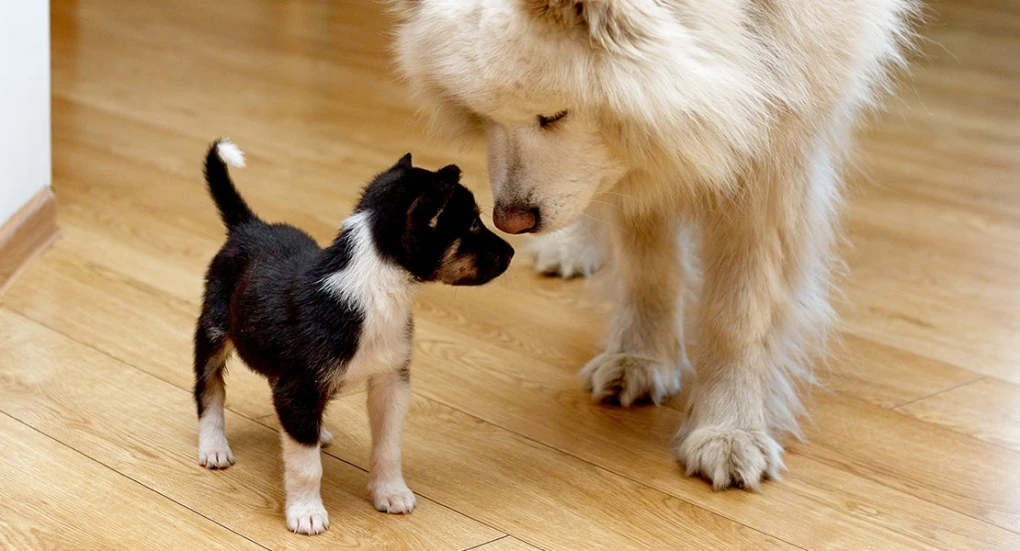When Can My Puppy Be Around Other Dogs? A Guide to Safe Socialization

Bringing a new puppy into your home is an exciting and joyful experience. As a responsible pet owner, you want to ensure your furry friend is properly socialized. However, it's crucial to understand when it's safe for your puppy to interact with other dogs to avoid potential health risks. In this article, we'll discuss the importance of puppy socialization, when and where to introduce your puppy to other dogs, and most importantly how to prioritize their health and well-being throughout the process. There is no "for sure" age, however knowing how to do it successfully will make it a smooth process for you and your new pup.
5 Important Things To Know/Understand About Introducing Your New Puppy To Other Dogs
- The Importance of Puppy Socialization:
Puppy socialization plays a vital role in shaping your dog's behavior and overall well-being. According to the American Veterinarian Society of Animal Behavior (AVSAB), behavioral issues, rather than infectious diseases, are the leading cause of death for dogs under three years old. Early socialization, ideally between 6 and 16 weeks of age, helps puppies develop confidence, social skills, and resilience. - Socializing Your Puppy at Home:
Your puppy can meet and play with other puppies of the same age, provided they are up to date on their vaccinations and haven't had contact with unvaccinated dogs. Schedule play dates at your home or the home of the other puppy owner to minimize exposure to public spaces. Similarly, supervised interactions with older dogs owned by friends and family can be safe, as long as those dogs are fully vaccinated, have no contact with unvaccinated dogs, and are known to be gentle with puppies. - Introducing Your Puppy to Strange Dogs:
Until your puppy has received all of their vaccinations and your veterinarian gives you the go-ahead, it's crucial to keep them from meeting unfamiliar dogs. Walking your puppy in public areas will have to wait. Even after they are fully vaccinated, caution is still necessary. Always keep your puppy on a leash and closely supervise interactions, even at the dog park. Steer clear of dogs exhibiting signs of aggression or bullying other dogs. - Obedience Classes and Public Places:
While some veterinarians and trainers allow puppies to attend puppy classes that screen for vaccinations and maintain sanitary facilities, others may recommend waiting until your puppy is fully vaccinated. It's advisable to consult your veterinarian for guidance. Dog parks and obedience classes, if chosen, should only be considered after your puppy has completed their vaccination series to protect them from potential exposure to diseases. - Additional Aspects of Puppy Socialization:
Remember that meeting other dogs is just one aspect of puppy socialization. There are numerous other experiences your puppy can have to become less fearful and more adaptable. Building a strong bond of trust between you and your puppy is essential during the vaccination period. Engage in playtime and begin teaching basic commands. Additionally, your puppy can interact with other types of pets or animals that do not pose a risk of disease transmission.
To protect your puppy's health while ensuring proper socialization, it's crucial to follow your veterinarian's recommended vaccination schedule. Prioritize your puppy's safety by carefully selecting the dogs they interact with and avoid public places until they have completed their vaccination series. Remember that puppy socialization involves more than just meeting other dogs; it also encompasses exposing your puppy to new people, sights, sounds, and experiences. By following these guidelines, you can provide your puppy with a safe and positive socialization journey, setting them up for a lifetime of happiness and well-being.